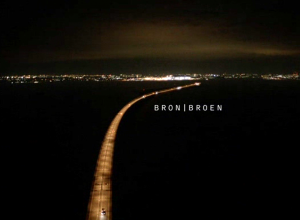Travel the world without leaving your living room couch, that’s the appeal of television to it’s viewers. Although the majority of shows which top the ratings charts here in Australia are home made, as a nation we are still provided with a great number of international shows, primarily from the USA, which create not only a multicultural viewing experience but a multi-national one, spreading across a great geographical landscape. Television shows are no longer limited to small studios with backdrops and sets, they can be filmed across the world, showcasing a dynamic range of locations, countries and cultures that the average tv viewer often never gets to experience in person for themselves. Most people may never leave the country or even city in which they are raised and thus television creates a channel for it’s viewers to experience these spaces for themselves in such a way that the spaces they see become familiar to them.
What is it about it’s use of space that makes tv such an interesting topic? Television allows for a space to be both real and imaginary at the same time. By showing the world through its programs, it creates a mediated
 version of the world, allowing viewers to feel as if they are a part of a certain place without having ever been here. I can relate to this from personal experience. Until July of 2012, I had never been to the United States. However, from all the television that I watched, I felt as if I lived there myself, knew the various cities and landmarks like my own neighbourhood. But upon arriving in New York, i realised this was not the case. While I did recognise various things like Times Square or the Statue of Liberty, they were different to how I had imagined, different to what I had seen on the television (The Statue of liberty, for example, was a lot smaller than I had thought) and this made me realise that the things we see and the places we feel we are a part of on a television show are just that, a television show. But is that the sole reason why we watch international television, to experience new places?
version of the world, allowing viewers to feel as if they are a part of a certain place without having ever been here. I can relate to this from personal experience. Until July of 2012, I had never been to the United States. However, from all the television that I watched, I felt as if I lived there myself, knew the various cities and landmarks like my own neighbourhood. But upon arriving in New York, i realised this was not the case. While I did recognise various things like Times Square or the Statue of Liberty, they were different to how I had imagined, different to what I had seen on the television (The Statue of liberty, for example, was a lot smaller than I had thought) and this made me realise that the things we see and the places we feel we are a part of on a television show are just that, a television show. But is that the sole reason why we watch international television, to experience new places?
Globalisation is occurring world wide and television is only helping to speed up the process. The broadcasting of international shows featuring not only foreign spaces but cultures has created a link between the worlds nations that has never been so strong. And even though it is often thought that the world is dominated by American traditions and culture, these things have seeped into every country from dozens of other countries across the globe as well. We currently live in a world where, through globalisation, foreign cultures are both like us and not like us, cultural identities are constantly changing and the once clearly defined borders between nations and cultures has been dropped. So, why do we watch foreign television?
 International shows such as Broén/Bron (The Bridge) provide a combination of both the familiar and unfamiliar to their audiences. While an audience will always be most comfortable watching a show which represents their own nation or culture, an appeal arrises in discovering those of another country. In The Bridge, viewers are treated to an exploration of Denmark and Sweden through the unfamiliar Scandinoir television style, a style which includes strong female leads whose only care seems to be about their job, dreary and colourless landscapes and sets and characters who are to the point with no love lost on witty office banter and, of course, the foreign languages. However, this unfamiliar style is delivered through the use of the familiar, a crime narrative. Viewers watch as the familiar story unfolds, a murder, a police detective, suspects and a cliff hanger but these are all delivered through foreign techniques. This combination of the familiar with the unfamiliar is what allows the audience to feel at ease watching international television. Even the potential for viewer alienation at the concept of two countries sharing a bridge as a border is extinguished with the prevalence of the comfortable, a crime must be solved, the story must continue. The chance for discomfort is shed at the inclusion of the familiar and thus the viewer can immerse themselves in and experience places in the international community without ever feeling too far away from home.
International shows such as Broén/Bron (The Bridge) provide a combination of both the familiar and unfamiliar to their audiences. While an audience will always be most comfortable watching a show which represents their own nation or culture, an appeal arrises in discovering those of another country. In The Bridge, viewers are treated to an exploration of Denmark and Sweden through the unfamiliar Scandinoir television style, a style which includes strong female leads whose only care seems to be about their job, dreary and colourless landscapes and sets and characters who are to the point with no love lost on witty office banter and, of course, the foreign languages. However, this unfamiliar style is delivered through the use of the familiar, a crime narrative. Viewers watch as the familiar story unfolds, a murder, a police detective, suspects and a cliff hanger but these are all delivered through foreign techniques. This combination of the familiar with the unfamiliar is what allows the audience to feel at ease watching international television. Even the potential for viewer alienation at the concept of two countries sharing a bridge as a border is extinguished with the prevalence of the comfortable, a crime must be solved, the story must continue. The chance for discomfort is shed at the inclusion of the familiar and thus the viewer can immerse themselves in and experience places in the international community without ever feeling too far away from home.